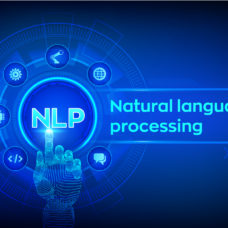Researchers in the U.S. and China are now using artificial intelligence to fight coronavirus. In short, the team has developed an AI tool to accurately predict which patient will go on to develop wet lungs.
COVID-19 is a lower respiratory tract infection. As a result, patients usually feel most of the diseases’ symptoms in the chest and lungs.
In extreme cases of COVID-19, a patient could develop Acute Respiratory Diseases (ARDS), meaning their lungs begin to fill with pockets of fluid.
This leads to intense shortness of breath and coughing. What’s more, wet lungs kills around 50 percent of coronavirus patients who get it.
Now, researchers have developed an algorithm that can detect this complication. This will enable medical professionals to choose where to prioritize care in the current resource-stretched health care system.
The researchers published their findings in the journal Computers, Materials & Continua.
So, how does the tool work?
Using an AI-Tool To Identify Wet Lungs in COVID-19 Patients
The team applied a machine-learning algorithm to data from 53 coronavirus patients across two hospitals in China.
After analysis, the researchers noted that changes in three features were most accurately predictive of the severe diseases. These include:
- Levels of the liver enzyme alanine aminotransferase (ALT)
- Reported body aches
- Hemoglobin levels
By combining this information with other factors, the tool was able to predict the risk of wet lungs with as much as 80 percent accuracy.
Meanwhile, conditions that are considered to be hallmarks of COVID-19 were not useful in predicting which patient would get ARDS. The age and sex of the patients were not helpful predictors either.
In a statement, co-author of the study and professor at New York University’s Grossman School of Medicine, Megan Coffee said:
“It’s been fascinating because a lot of the data points that the machine used to help influence its decisions were different than what a clinician would normally look at.”
Using Artificial Intelligence in Medicine
Using AI in medical settings is not an entirely new concept. Researchers are already exploring how artificial intelligence can improve medical imaging data, diagnosis, as well as treatment.
For example, a recent article in the journal Nature suggested that AI can outperform humans at finding breast cancer on mammograms. Similarly, researchers at Penn State developed a system that could warn physicians of the potential adverse effects of drug-drug interaction.
So, why is this any different?
For one, health professionals are learning about COVID-19 on the go. Also, the disease is spreading at a fast race, putting a strain on the available medical resources.
Hopefully, the new AI tool can steer physicians in the right direction. It’ll allow them to know who to focus on as the hospitals become increasingly overwhelmed.



















I was constantly tired and short of breath due to my Emphysema, I was introduced to VineHealth Center and their COPD Herbal Protocol. I started on the COPD Treatment last year, my symptoms gradually diminished including my shortness of breath, wheezing and fatigue. Reach the m at vinehealthcenter. c om. I am Emphysema free!